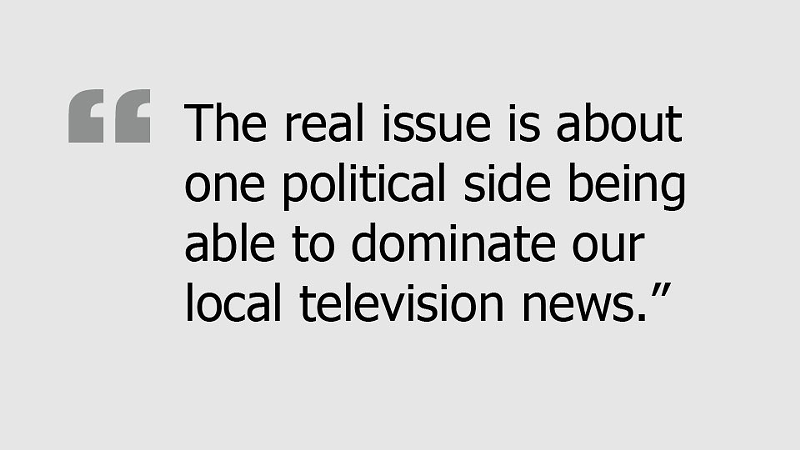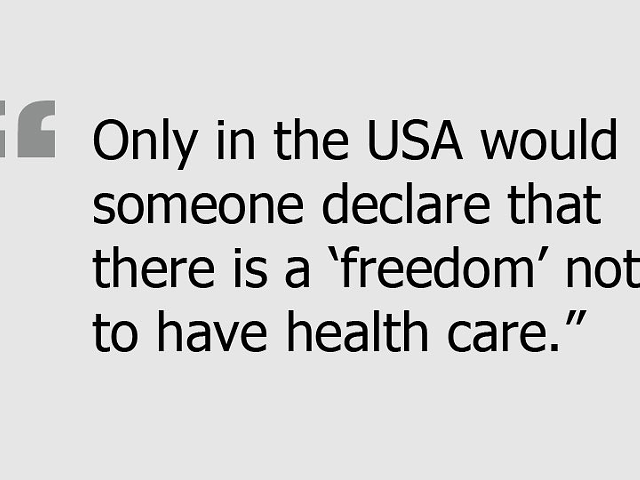If you’re not following what’s going on with the FCC you might be missing out on a lot more than what you realize. I’m talking about the Federal Communications Commission, not FC Cincinnati (but more on them later). The former FCC is planning to change two sets of rules that may significantly impact how you receive news and information — both on television and online.
Ajit Pai, FCC Chair, has called into question broadcast ownership rules created to protect localism, diversity and competition — namely rules that limit a single company from reaching more than 39 percent of the national television audience through its owned-and-operated stations. The rules also include restraints on ownership of multiple stations within certain markets.
Pai’s signal to relax broadcast ownership rules comes as the Sinclair Broadcast Group — already the nation’s largest — has made a bid to acquire Tribune Media, which would give the company over 200 local television stations across the United States, in addition to the Chicago-based superstation WGN. Sinclair currently owns nine stations in Ohio, including two properties in Cincinnati (WKRC, the CBS affiliate, and WSTR), three in Columbus (including ABC, FOX and CW affiliates), two in Dayton (the ABC and FOX affiliates), and Toledo’s NBC affiliate. With the purchase of Tribune, Sinclair will add WJW (the FOX affiliate) in Cleveland.
What critics of the deal are most concerned about is not just Sinclair’s size, but also its diminution of localism and diversity in news and public affairs programming. Sinclair, which is headquartered in Maryland, has been widely panned for its centralized approach to determining content for its owned-and-operated stations across the U.S., and was recently lambasted by HBO’s Last Week Tonight host John Oliver for its proliferation of “must run” pieces.
Produced from Sinclair’s headquarters, the segments include political commentary with a notable conservative slant by Mark Hyman, and a “Bottom Line with Boris” segment with Russian-born political commenter Boris Epshteyn, a former Trump Administration official. Local Sinclair-owned stations are required to air this content nine times per week.
However, it would be simplistic to reduce the debate about Sinclair’s programming practices to whether the news media is too conservative or too liberal. The real issue is about one political side being able to dominate our local television news. While national cable news networks may have distinct flavors — Fox Cable News skews right and MSNBC leans left — local over-the-air broadcasting has been sacrosanct under the law, as the electromagnetic spectrum is a finite public resource that commercial broadcasters get to use for free in return for serving the public interest, which has been broadly defined by the principles of localism, diversity and competition.
When the FCC had comparative hearings to determine allocation of the limited number of broadcast television licenses within a defined market — local ownership of the station was a significant consideration, as well as maintaining a diversity of perspectives in news and public affairs programming. Although comparative hearings were eventually discontinued, the primary mechanism the FCC has used to promote diversity of expression in local markets is ensuring diversity of ownership.
As the federal Court of Appeals for the District of Columbia said in Fox Television Stations, Inc. v. FCC in 2002, “diversity of ownership is perhaps an aspirational but surely not irrational proxy” for diversity of programming. This was essentially the same rationale when the U.S. broke up the NBC network in 1943 because it was becoming too powerful through its chain of stations, forcing the network to spin off what became the ABC network.
In today’s media marketplace, FCC Chairman Pai has been critical of broadcast ownership restrictions because online media services are now creating original programming that is competing for television audiences. While internet-based media affords the most participatory and diverse array of speech ever known, competition and diversity online may also shrink if the agency does away with its network neutrality rules.
The FCC currently treats broadband internet service operators as “common carriers” under the law, meaning that they — like traditional telephone service operators, railroads, trucking operators and mail carriers — have to carry all messages and not discriminate based upon who is sending or receiving the message. As common carriers, broadband service providers like Comcast, Verizon and AT&T and others cannot lawfully block content, degrade access or charge extra fees for services that compete with their own.
Unfortunately, Chairman Pai wants to replace this with a model that will allow internet operators to act like cable or satellite service providers, so that they may function as an editor of your online experience. For instance, if your internet service provider has its own movie streaming service it may block or slow the streaming speed of competitors, such as Netflix. Or, the provider may charge extra fees to allow access to competing content and services.
As another example, think back to FC Cincinnati’s U.S. Open Cup game scheduled for July 12 in Miami, which was to be televised on the Spectrum Sports Ohio channel, which is only available on Charter/Spectrum cable service and DirecTV in the Cincinnati area. If you happen to be a Cincinnati Bell cable or DISH satellite subscriber, you were out of luck. Is this the kind of logic that we want to inflict upon the internet with our news and information services?
Whether our political stripes are left, right or center, we should all have a passion for self-expression and the collective interest of our society to receive a diverse array of opinions and perspectives from a wide variety of news and information outlets.
The concerns presented here are about the impact that media ownership consolidation tends to have on localism and everyone’s ability to hear a diverse expression of political perspectives, as well as competition in our information industries.
JEFFREY LAYNE BLEVINS, Ph.D., is a CityBeat opinion contributor and head of the Journalism Department at the University of Cincinnati. Contact Dr. Blevins at [email protected] or @JeffBlevinsPhD.






